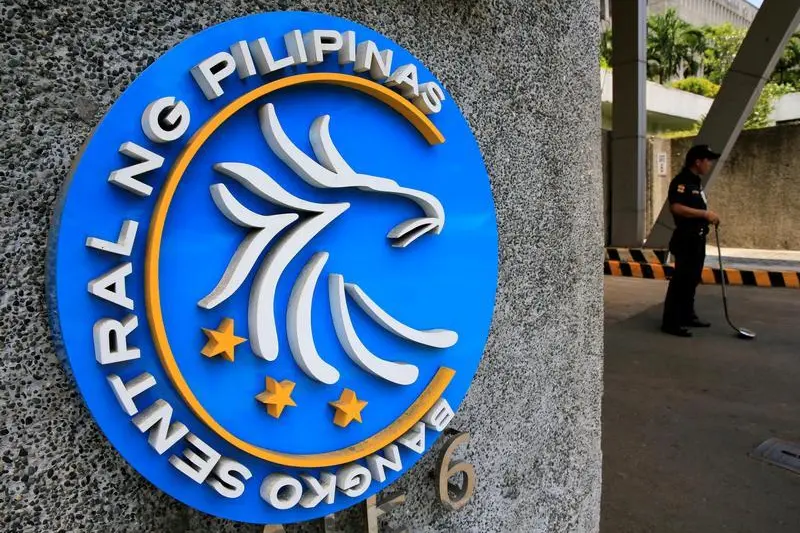PHOTO
MANILA - The Philippine central bank kept its benchmark interest rate steady on Thursday, but left the door open to further policy easing as global risks to growth increases and as policymakers expect inflation to slow more than previously expected.
The central bank left the rate on its overnight reverse repurchase facility at 4.5%, opting to adopt a wait-and-see stance following an upside surprise in inflation last month.
"The Monetary Board believes that the manageable inflation outlook and firm domestic growth prospects support keeping monetary policy settings steady for the time being", Bangko Sentral ng Pilipinas (BSP) Governor Benjamin Diokno told a media briefing.
The governor, however, raised concerns about the risks to the domestic economy from Sino-U.S. trade tensions and slowing global growth.
"There is room for easing monetary policy because the view on inflation is quite optimistic", BSP's deputy governor Diwa Guinigundo said when asked about the outlook for policy.
Only five of 11 economists in a Reuters poll had predicted no change in rates, with the rest expecting a 25 basis points cut.
The Philippines' decision came hours after Federal Reserve policy review, which as widely expected left rates unchanged though policymakers signalled possible monetary easing as early as next month to combat rising economic risks.
Capital Economics said in a note to clients that "with inflation set to fall back again over the coming months, we think the central bank will resume its loosening cycle later in the year."
The BSP reiterated its view that the uptick in May inflation was transitory and the pace of price increases would slowdown in the following months due to declining oil prices and the prospect of a stronger peso, giving it policy head room to support the economy.
The Philippines' consumer price index in May rose 3.2% from a year earlier, from 3.0% in April, which was a 16-month low, but is expected to remain well inside the central bank's 2-4 percent target for this year and in 2020.
Inflation is expected to average 2.7% this year, the central bank said, down from its previous forecast of 2.9%. It projected average inflation of 3.0% next year, down from an earlier estimate of 3.1%.
Policymakers expect government spending to pick up in the second half after the delay in the budget approval, making this year's 6-7 percent growth target still feasible.
The peso closed firmer at 51.645 against the U.S. dollar from Wednesday's 51.890 after the policy decision, while the benchmark stock index had ended 0.1% higher ahead of the rates announcement.
(Reporting by Karen Lema and Neil Jerome Morales Editing by Shri Navaratnam)
© Reuters News 2019





















